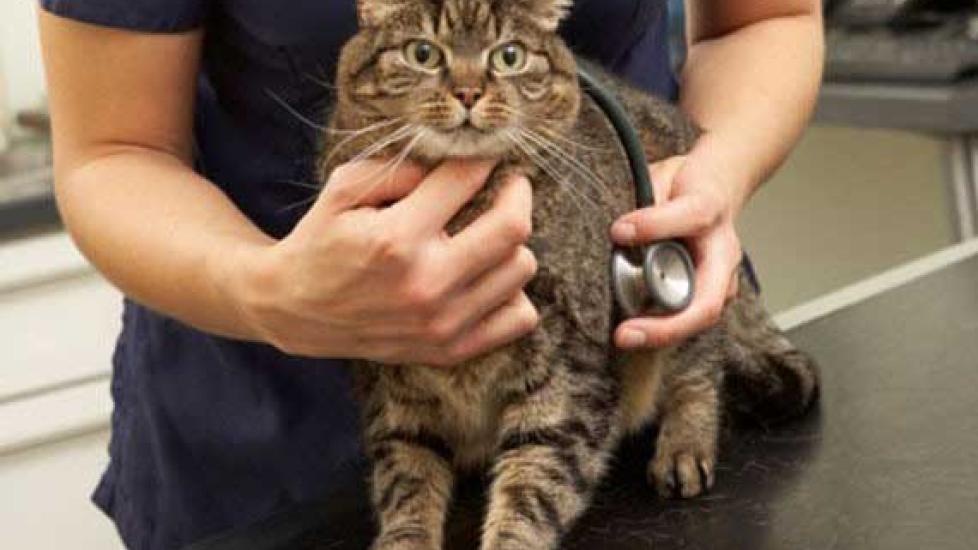Is a Cancer Specialist Necessary for Your Pet?
The common cancers we see in companion animals (e.g., lymphoma and mast cell tumors) are what I affectionately refer to as the “bread and butter” of a veterinary oncologist’s therapeutic repertoire. There’s a wealth of available information about the ideal ways to treat those diseases and solid information regarding prognosis and outcome for the majority of cases.
Despite common things happening commonly, I’ve noticed a peculiar trend over the few years that I’ve been practicing as an oncologist. It seems that lately I am tending to see less and less of those “straightforward” cases, and more and more of the unusual types of tumors.
One might assume this is a result of decreasing/increasing disease frequency; however, dogs and cats still develop the “usual” cancers as often as they did in previous years. So what is happening to the bread and butter cases?
It seems that for more of the “straightforward” cases, owners are electing to treat their pets with their primary care veterinarians rather than a specialist.
On the surface, several factors likely influence this trend, including:
Geography: Though you may find several specialty hospitals within a relatively short radius of where I work, for many other regions this isn’t the case and access to specialists can be difficult. Lack of convenience is a major contributing factor to lower referral rates and lower compliance by owners.
Owner comfort: In many cases their primary veterinarian is someone they have trusted their pet’s care with since puppy- or kitten-hood. Despite my advanced training and experience, their faith in their regular vet remains higher, and if their doctor exudes confidence in the treatment plan, they won’t even consider asking for a referral.
Owner finances: The overhead for running a veterinary specialty service is far greater than a general veterinary office, and this is transmitted in pricing scheme. It’s never easy to talk money with owners, and I can’t really argue when an owner asks, “Won’t it be less expensive to have the treatments done by my vet?”
It’s difficult to translate to an owner that the increased price at my hospital covers so many hidden aspects of their pet's care, from the high cost of the specialized closed containment system we use to make sure our chemotherapy treatments are administered safely, to the maintenance for the biosafety hood we use to draw up the drugs.
The higher price also covers the salaries of the technical staff, who are available 24/7 to treat their pet should a complication arise from treatment, as well as making sure I can afford to attend continuing education seminars to stay current on the most advanced therapies available for their pet's care.
Referring veterinarian finances: If a primary veterinarians is comfortable and confident managing common cancers "in house' they tend not to refer patients to specialists as keeping cases closer to home maintains not only revenue, but a close relationship with the owners.
In some cases, owners may not even be aware that referral is an option because their primary care veterinarian doesn’t suggest it. A recent study showed that (among other reasons) veterinarians were more likely to refer cancer cases when they had positive perceptions of 1) the pet’s health status, 2) the interaction and bond between the client and dog, and 3) the client’s financial status. The study also showed that about half of the primary care veterinarians did not even feel cancer was as worthwhile to treat as some other chronic diseases. Those factors are extremely subjective and not things doctors should be deciding for owners.
The issue of not offering a referral to an oncologist isn't limited to general veterinarians, but also can be a problem amongst non-oncology boarded specialists (e.g., internists, neurologists, surgeons, veterinary dentists, etc.) who routinely prescribe chemotherapy treatments for their patients. When one of “my own” fails to stress to owners the benefit of seeing me for even what would be considered a routine cancer case, it further contributes to the lack of valued perception of my profession.
A reasonable question to ask is, does it make a difference if a pet is treated with a specialist versus their primary care veterinarian? Though I’m not aware of this question being asked directly for tumors treated solely with chemotherapy, an older study which examined the outcome of cats undergoing surgery for presumed injection site sarcoma found that the prognosis was significantly longer when surgery was performed by a veterinary surgeon versus a primary practitioner. I would venture a similar benefit would be seen in pets with cancer treated by an oncologist versus a general practitioner.
Ideally, every pet that developed cancer would be afforded the chance to be treated by a specialist. The reality is that for the vast majority of pets this is not an option. When finances or geography are the main contributing factors, I can accept those as being out of our professional control.
However, if the issue is simply a lack of owner perception of the value of undergoing treatment with a specialist versus a primary veterinarian, and we wish to pride ourselves with offering standard of care on par with our human counterparts, don’t we owe it to our patients and owners to discuss all options and empower them to make the best decision possible for their pet?

Dr. Joanne Intile
Image: Thinkstock
